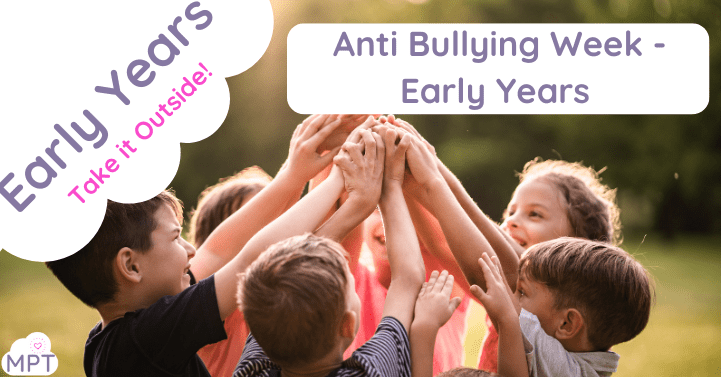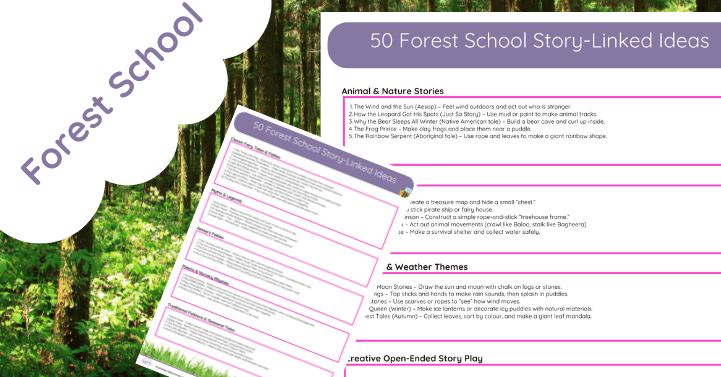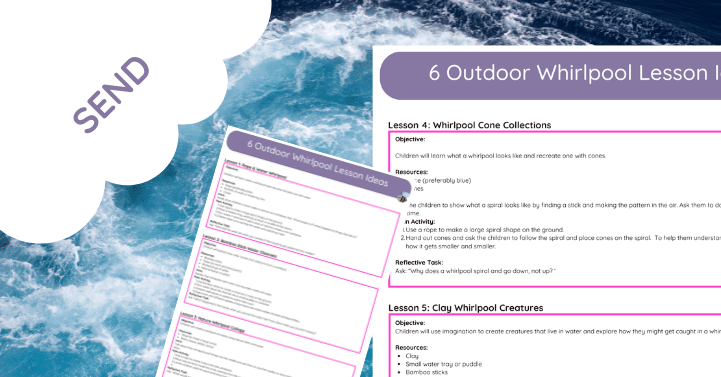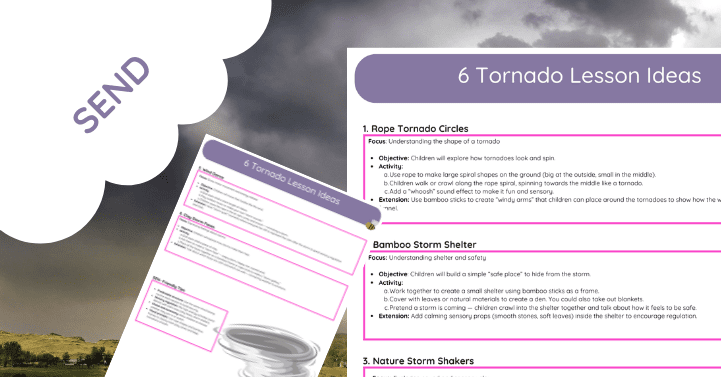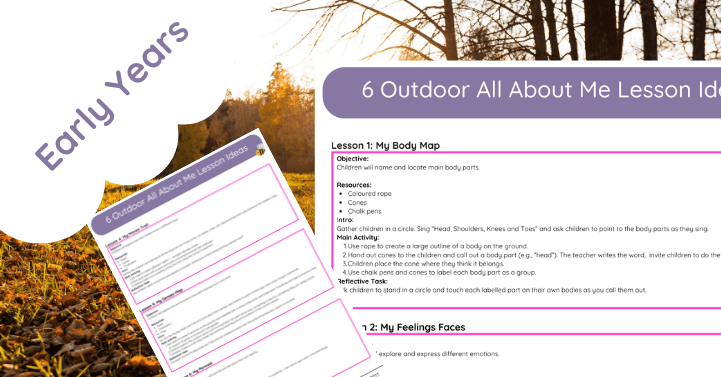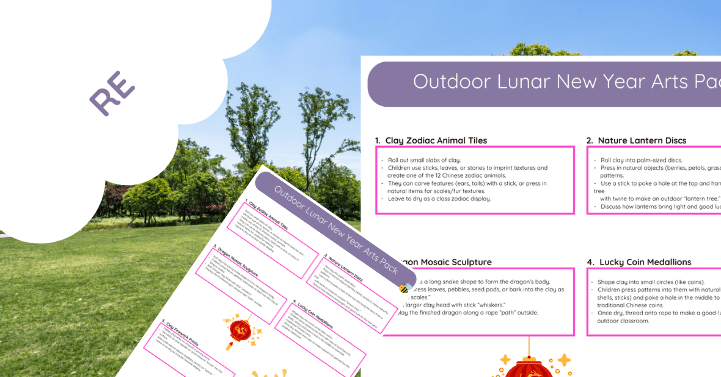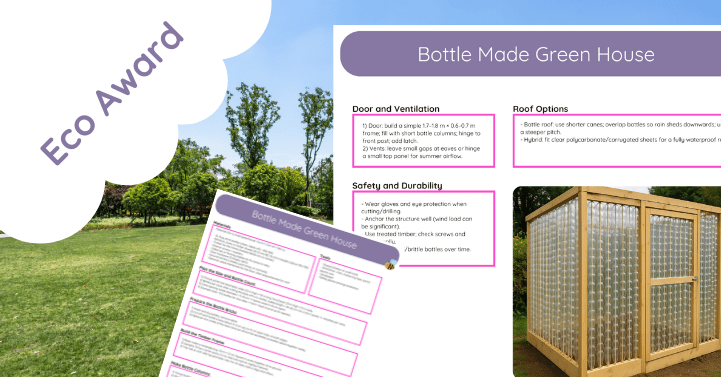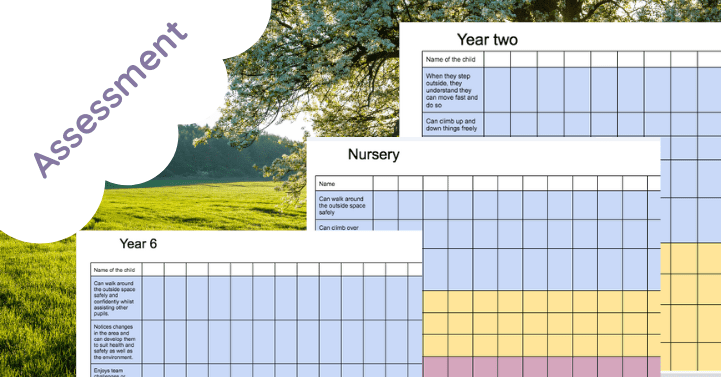Anti-Bullying Week Ideas Pack for Early Years
Our Anti-Bullying Week Ideas Pack for Early Years is designed to help young children understand the importance of kindness, empathy, and inclusion through engaging outdoor activities. Inspired by nature and play, this pack is filled with hands-on, age-appropriate activities that support early years educators in teaching anti-bullying concepts in a way that is fun, interactive, and accessible. Each activity fosters positive interactions, teamwork, and respect, empowering children to create a supportive and inclusive environment.
What’s Inside:
- Kindness and Empathy Activities: These include activities like the “Kindness Nature Walk” and “Friendship Rope Circle,” where children explore ways to support and appreciate each other, promoting empathy and kindness.
- Teamwork Challenges: With activities like the “Helping Hands Obstacle Course,” children learn the value of cooperation, trust, and working together, building positive social connections.
- Self-Expression and Positive Communication: Encourages children to share their thoughts and feelings with activities like the “Anti-Bullying Pledge Circle,” helping them learn to stand up for themselves and others.
- Creative Friendship Projects: Collaborative art activities, like the “Friendship Nature Art,” allow children to create something meaningful together, reinforcing inclusion and community.
- Easy, Nature-Based Setup: Designed for outdoor learning with minimal materials, making each activity quickly set up and adaptable for different group sizes.
Why Choose This Pack?
Our Anti-Bullying Week Ideas Pack for Early Years helps educators create a nurturing and inclusive atmosphere where children learn the importance of kindness, support, and respect. By focusing on outdoor activities that encourage exploration and teamwork, this pack brings anti-bullying concepts to life naturally and joyfully. It is perfect for Anti-Bullying Week or any time you want to reinforce positive social skills in early years settings.
The Importance of Anti-Bullying Week in Early Years
Anti-bullying week provides a valuable opportunity to focus on teaching young children about kindness, empathy, and respect. In the early years, it’s essential to build a foundation of positive social skills that will help children navigate relationships as they grow. Addressing anti-bullying concepts in early childhood can foster a culture of inclusion where children feel safe, valued, and supported. Here’s why Anti-Bullying Week is so important for early years and some practical ideas for incorporating it into early years education.
Why Anti-Bullying Education Matters in Early Years
1. Building Social and Emotional Skills Early On
The early years are critical for developing social and emotional skills. Teaching children about empathy and kindness helps them understand how to relate positively with others. According to the Child Mind Institute, children who develop these skills can better manage their emotions and build healthy relationships. Anti-Bullying Week allows us to focus on these skills in fun and accessible ways intentionally.
2. Creating a Safe and Inclusive Environment
Children learn best when they feel safe. The NSPCC highlights the importance of a supportive environment where children feel secure and valued. Anti-Bullying Week activities can help build a sense of community, reinforcing that everyone has a role in creating a safe space.
3. Preventing Bullying Behaviors Before They Start
Starting early with anti-bullying education can prevent negative behaviours from developing. Kidscape emphasizes the power of teaching empathy and kindness before children encounter situations involving bullying, setting the groundwork for respectful interactions.
4. Teaching Respect and Inclusion
In early years, children are still learning how to communicate and express themselves. The Anti-Bullying Alliance explains that teaching children to respect differences and practice inclusion helps them appreciate diversity, setting the stage for respectful relationships throughout life.
5. Encouraging Emotional Literacy
Helping children recognize and name their emotions is a key step in social-emotional development. MindUP offers resources on emotional literacy, which helps children understand and manage their feelings, leading to better peer interactions. Anti-Bullying Week can introduce activities that teach children to identify their own emotions and empathize with others.
Practical Ways to Celebrate Anti-Bullying Week in Early Years
Here are some hands-on, outdoor activities inspired by the Muddy Puddle Teacher Approach to help children connect with kindness, empathy, and respect concepts.
1. Kindness Nature Hunt
A Kindness Nature Hunt is a fantastic way to introduce young children to kindness. Encourage children to look for natural items, such as leaves, stones, or flowers, and use them to make a “kindness circle” where they can share something about a friend.
- Learning Benefits: This activity promotes kindness and sharing, helping children express positive thoughts about each other.
2. Friendship Rock Painting
Children can decorate stones with kind messages or symbols of friendship. Afterwards, they can place their rocks in a designated “friendship garden” as a reminder of their commitment to kindness and respect.
- Learning Benefits: This activity encourages creativity and reinforces the value of positive interactions.
3. Empathy Circle Time with Role-Play
Using role-play in a circle time setting helps children experience different emotions and learn empathy. Provide children with scenarios, such as “What would you do if your friend is feeling sad?” and discuss how to show kindness and support.
- Learning Benefits: Role-playing helps children practice empathy, kindness, and problem-solving.
- Additional Resource: The Centre for Early Childhood provides tools for building empathy in early years.
4. Teamwork Obstacle Course
Please set up a simple outdoor obstacle course and encourage children to help each other complete it. The focus should be on teamwork and supporting each other through challenges, reinforcing that everyone benefits when we work together.
- Learning Benefits: This activity promotes collaboration, patience, and trust among peers.
- Additional Resource: Play England shares the benefits of teamwork and outdoor play in developing social skills.
5. Feelings Wall with Natural Materials
Encourage children to create a “Feelings Wall” using natural materials. They can pick items like leaves, sticks, or stones to represent emotions and place them on the wall. This helps children explore their feelings and discuss them with friends.
- Learning Benefits: This activity encourages emotional literacy and helps children express themselves.
- Additional Resource: Action for Children offers advice on emotional literacy for early years.
6. Kindness Pledge Circle
Gather children outdoors in a circle and encourage them to pledge kindness, such as “I promise to be kind to my friends.” They can write or draw their pledges on leaves or stones and place them in a “kindness garden” as a reminder.
- Learning Benefits: Reinforces the idea of personal responsibility in creating a positive environment.
- Additional Resource: The Anti-Bullying Alliance offers resources and ideas for creating kindness pledges.
7. Sensory Play for Calming Emotions
Set up a sensory play area where children can explore calming materials like water, sand, or leaves. This helps them relax, process emotions, and self-regulate, providing tools they can use in situations where they feel frustrated or upset.
- Learning Benefits: Teaches children self-regulation and helps them recognize calming techniques.
- Additional Resource: Early Years Alliance has sensory play and emotional regulation resources.
8. Compassionate Storytime with Nature Props
Select stories that focus on themes of friendship, kindness, and empathy. Use natural props, like leaves or stones, to help children act out parts of the story, making the lesson interactive and memorable.
- Learning Benefits: Promotes understanding of empathy through stories and hands-on activities.
- Additional Resource: BookTrust provides a list of books that encourage kindness and empathy.
9. Create a “Kindness Tree”
Designate a tree in the outdoor space as a “Kindness Tree.” Children can tie ribbons or leaves to the tree, each representing an act of kindness they’ve done or received. This creates a visual reminder of kindness.
- Learning Benefits: Reinforces positive behaviour by making kindness visible and celebrated.
- Additional Resource: Nature Play WA shares similar ideas for nature-based outdoor learning.
10. Feelings Obstacle Course
Create a course with stations representing different feelings, like “sad,” “happy,” “angry,” and “excited.” Children can move through the course, acting out each feeling, and learning that all emotions are okay and manageable.
- Learning Benefits: Encourages children to identify and express emotions healthily.
- Additional Resource: MindUP provides tools for teaching emotional literacy through play.


